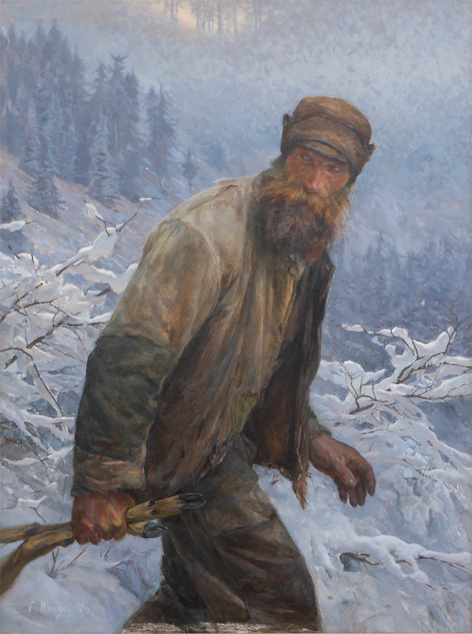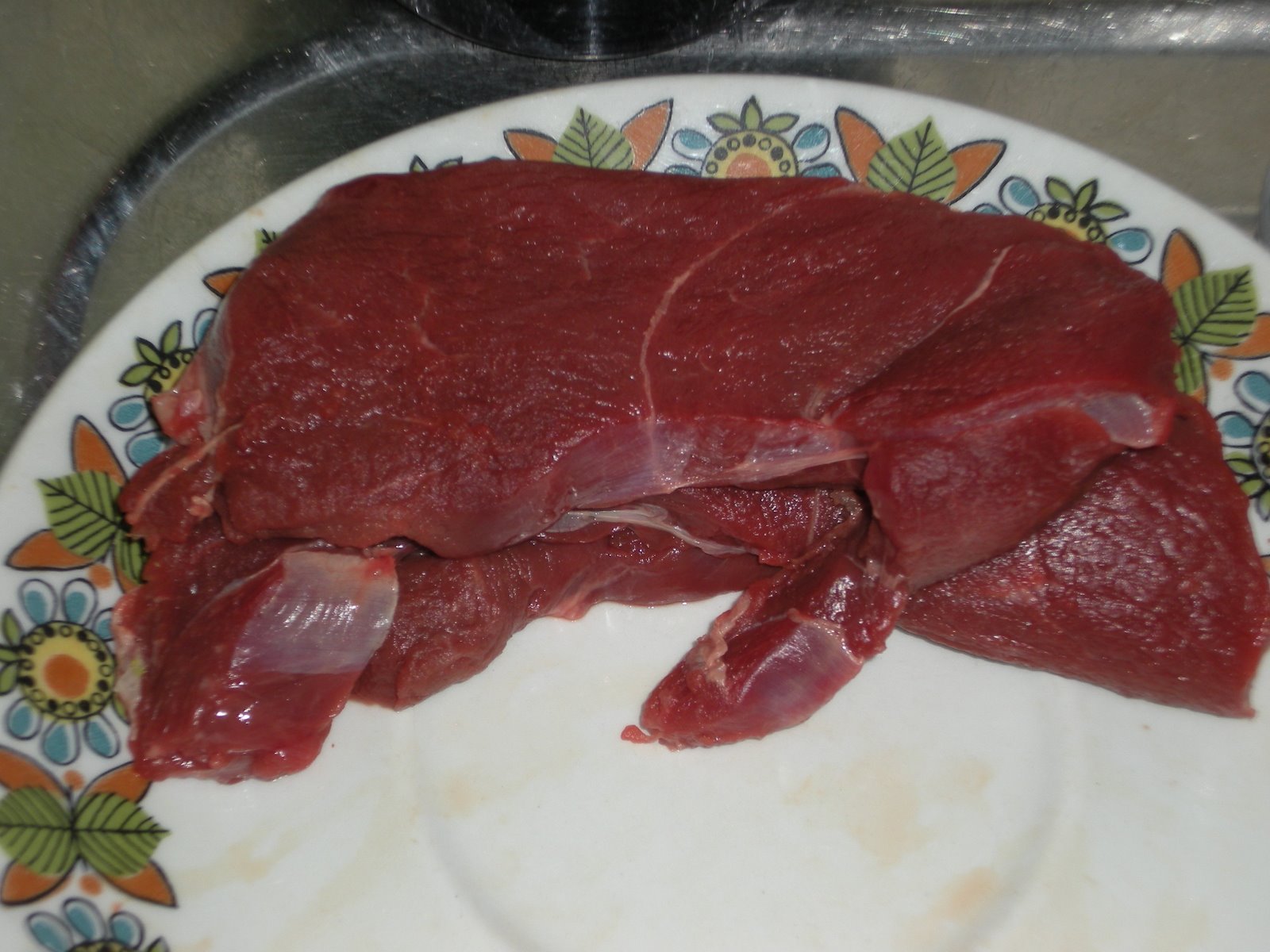|
Deer Act 1980
The Deer Act 1980 (c. 49) was an act of Parliament in the United Kingdom. It came into operation in November 1980, and has since been fully repealed by the Deer Act 1991. The main effect of the act was to put measures in place to prevent the poaching of deer Deer or true deer are hoofed ruminant mammals forming the family Cervidae. The two main groups of deer are the Cervinae, including the muntjac, the elk (wapiti), the red deer, and the fallow deer; and the Capreolinae, including the reindeer ... and control the sale of venison. It amended the Deer Act 1963. References *''Whitaker's Almanack: for the year 1982'', complete edition, p. 361. J. Whitaker & Sons, London, 1981 *''Chronological table of the statutes''; HMSO, London. 1993. External linksDeer Act 1980 ''legislation.gov.uk'', The National Archives, UK. United Kingdom Acts of Parliament 1980 Hunting and shooting in the United Kingdom Repealed United Kingdom Acts of Parliament Hunting legislation { ... [...More Info...] [...Related Items...] OR: [Wikipedia] [Google] [Baidu] |
Act Of Parliament (UK)
In the United Kingdom an act of Parliament is primary legislation passed by the Parliament of the United Kingdom. An act of Parliament can be enforced in all four of the UK constituent countries (England, Scotland, Wales and Northern Ireland); however as a result of devolution the majority of acts that are now passed by Parliament apply either to England and Wales only, or England only; whilst generally acts only relating to constitutional and reserved matters now apply to the whole of the United Kingdom. A draft piece of legislation is called a bill; when this is passed by Parliament and given Royal Assent, it becomes an act and part of statute law. Classification of legislation Acts of Parliament are classified as either "public general acts" or "local and personal acts" (also known as "private acts"). Bills are also classified as "public", "private", or "hybrid". Public general acts Public general acts form the largest category of legislation, in principle affe ... [...More Info...] [...Related Items...] OR: [Wikipedia] [Google] [Baidu] |
United Kingdom
The United Kingdom of Great Britain and Northern Ireland, commonly known as the United Kingdom (UK) or Britain, is a country in Europe, off the north-western coast of the continental mainland. It comprises England, Scotland, Wales and Northern Ireland. The United Kingdom includes the island of Great Britain, the north-eastern part of the island of Ireland, and many smaller islands within the British Isles. Northern Ireland shares a land border with the Republic of Ireland; otherwise, the United Kingdom is surrounded by the Atlantic Ocean, the North Sea, the English Channel, the Celtic Sea and the Irish Sea. The total area of the United Kingdom is , with an estimated 2020 population of more than 67 million people. The United Kingdom has evolved from a series of annexations, unions and separations of constituent countries over several hundred years. The Treaty of Union between the Kingdom of England (which included Wales, annexed in 1542) and the Kingdom of Scotland in 170 ... [...More Info...] [...Related Items...] OR: [Wikipedia] [Google] [Baidu] |
Deer Act 1991
Deer or true deer are hoofed ruminant mammals forming the family Cervidae. The two main groups of deer are the Cervinae, including the muntjac, the elk (wapiti), the red deer, and the fallow deer; and the Capreolinae, including the reindeer (caribou), white-tailed deer, the roe deer, and the moose. Male deer of all species (except the water deer), as well as female reindeer, grow and shed new antlers each year. In this they differ from permanently horned antelope, which are part of a different family (Bovidae) within the same order of even-toed ungulates (Artiodactyla). The musk deer (Moschidae) of Asia and chevrotains (Tragulidae) of tropical African and Asian forests are separate families that are also in the ruminant clade Ruminantia; they are not especially closely related to Cervidae. Deer appear in art from Paleolithic cave paintings onwards, and they have played a role in mythology, religion, and literature throughout history, as well as in heraldry, such as red dee ... [...More Info...] [...Related Items...] OR: [Wikipedia] [Google] [Baidu] |
Poaching
Poaching has been defined as the illegal hunting or capturing of wild animals, usually associated with land use rights. Poaching was once performed by impoverished peasants for subsistence purposes and to supplement meager diets. It was set against the hunting privileges of nobility and territorial rulers. Since the 1980s, the term "poaching" has also been used to refer to the illegal harvesting of wild plant species. In agricultural terms, the term 'poaching' is also applied to the loss of soils or grass by the damaging action of feet of livestock, which can affect availability of productive land, water pollution through increased runoff and welfare issues for cattle. Stealing livestock as in cattle raiding classifies as theft, not as poaching. The United Nations' Sustainable Development Goal 15 enshrines the sustainable use of all wildlife. It targets the taking of action on dealing with poaching and trafficking of protected species of flora and fauna to ensure their avail ... [...More Info...] [...Related Items...] OR: [Wikipedia] [Google] [Baidu] |
Deer
Deer or true deer are hoofed ruminant mammals forming the family Cervidae. The two main groups of deer are the Cervinae, including the muntjac, the elk (wapiti), the red deer, and the fallow deer; and the Capreolinae, including the reindeer (caribou), white-tailed deer, the roe deer, and the moose. Male deer of all species (except the water deer), as well as female reindeer, grow and shed new antlers each year. In this they differ from permanently horned antelope, which are part of a different family (Bovidae) within the same order of even-toed ungulates (Artiodactyla). The musk deer (Moschidae) of Asia and chevrotains (Tragulidae) of tropical African and Asian forests are separate families that are also in the ruminant clade Ruminantia; they are not especially closely related to Cervidae. Deer appear in art from Paleolithic cave paintings onwards, and they have played a role in mythology, religion, and literature throughout history, as well as in heraldry, such as ... [...More Info...] [...Related Items...] OR: [Wikipedia] [Google] [Baidu] |
Venison
Venison originally meant the meat of a game animal but now refers primarily to the meat of antlered ungulates such as elk or deer (or antelope in South Africa). Venison can be used to refer to any part of the animal, so long as it is edible, including the internal organs. Venison, much like beef or pork, is categorized into specific cuts, including roast, sirloin, and ribs. Etymology The word derives from the Latin ''venari'', meaning "to hunt or pursue". This term entered the English language through Norman French ''venaison'' in the 11th century, following the Norman conquest of England and the establishment of Royal Forests. Definition ''Venison'' originally described meat of any game animal killed by hunting and was applied to any animal from the families ''Cervidae'' (true deer), ''Leporidae'' (rabbits and hares), ''Suidae'' (wild boar) and certain species of the genus ''Capra'' (goats and ibex). In southern Africa, the word ''venison'' refers to the meat of antelope, a ... [...More Info...] [...Related Items...] OR: [Wikipedia] [Google] [Baidu] |
Deer Act 1963
Deer or true deer are hoofed ruminant mammals forming the family Cervidae. The two main groups of deer are the Cervinae, including the muntjac, the elk (wapiti), the red deer, and the fallow deer; and the Capreolinae, including the reindeer (caribou), white-tailed deer, the roe deer, and the moose. Male deer of all species (except the water deer), as well as female reindeer, grow and shed new antlers each year. In this they differ from permanently horned antelope, which are part of a different family ( Bovidae) within the same order of even-toed ungulates (Artiodactyla). The musk deer ( Moschidae) of Asia and chevrotains ( Tragulidae) of tropical African and Asian forests are separate families that are also in the ruminant clade Ruminantia; they are not especially closely related to Cervidae. Deer appear in art from Paleolithic cave paintings onwards, and they have played a role in mythology, religion, and literature throughout history, as well as in herald ... [...More Info...] [...Related Items...] OR: [Wikipedia] [Google] [Baidu] |
United Kingdom Acts Of Parliament 1980
United may refer to: Places * United, Pennsylvania, an unincorporated community * United, West Virginia, an unincorporated community Arts and entertainment Films * ''United'' (2003 film), a Norwegian film * ''United'' (2011 film), a BBC Two film Literature * ''United!'' (novel), a 1973 children's novel by Michael Hardcastle Music * United (band), Japanese thrash metal band formed in 1981 Albums * ''United'' (Commodores album), 1986 * ''United'' (Dream Evil album), 2006 * ''United'' (Marvin Gaye and Tammi Terrell album), 1967 * ''United'' (Marian Gold album), 1996 * ''United'' (Phoenix album), 2000 * ''United'' (Woody Shaw album), 1981 Songs * "United" (Judas Priest song), 1980 * "United" (Prince Ital Joe and Marky Mark song), 1994 * "United" (Robbie Williams song), 2000 * "United", a song by Danish duo Nik & Jay featuring Lisa Rowe Television * ''United'' (TV series), a 1990 BBC Two documentary series * ''United!'', a soap opera that aired on BBC One from 1965-19 ... [...More Info...] [...Related Items...] OR: [Wikipedia] [Google] [Baidu] |
Hunting And Shooting In The United Kingdom
In the United Kingdom, the term hunting with no qualification generally refers to hunting with hounds, e.g. normally fox hunting, stag (deer) hunting, beagling, or minkhunting, whereas shooting is the shooting of game birds. What is called deer hunting elsewhere is deer stalking. According to the British Association for Shooting and Conservation (BASC) over a million people a year participate in shooting, including stalking, shooting, hunting, clay shooting and target shooting. Firearm ownership is regulated in the UK by licensing. Provisions exist for those without a Firearm or Shotgun certificate to shoot under the supervision of a certificate holder. History Hunting has been practised in Britain since prehistoric times; it was a crucial activity of hunter-gatherer societies before the domestication of animals and the dawn of agriculture. During the last ice age, humans and neanderthals hunted mammoths and woolly rhinoceroses by driving them over cliffs; evidence has been ... [...More Info...] [...Related Items...] OR: [Wikipedia] [Google] [Baidu] |
Repealed United Kingdom Acts Of Parliament
A repeal (O.F. ''rapel'', modern ''rappel'', from ''rapeler'', ''rappeler'', revoke, ''re'' and ''appeler'', appeal) is the removal or reversal of a law. There are two basic types of repeal; a repeal with a re-enactment is used to replace the law with an updated, amended, or otherwise related law, or a repeal without replacement so as to abolish its provisions altogether. Removal of secondary legislation is normally referred to as revocation rather than repeal in the United Kingdom and Ireland. Under the common law of England and Wales, the effect of repealing a statute was "to obliterate it completely from the records of Parliament as though it had never been passed." This, however, is now subject to savings provisions within the Interpretation Act 1978. In parliamentary procedure, the motion to rescind, repeal, or annul is used to cancel or countermand an action or order previously adopted by the assembly. Partial or full repeals A partial repeal occurs when a specified part o ... [...More Info...] [...Related Items...] OR: [Wikipedia] [Google] [Baidu] |

.jpg)


